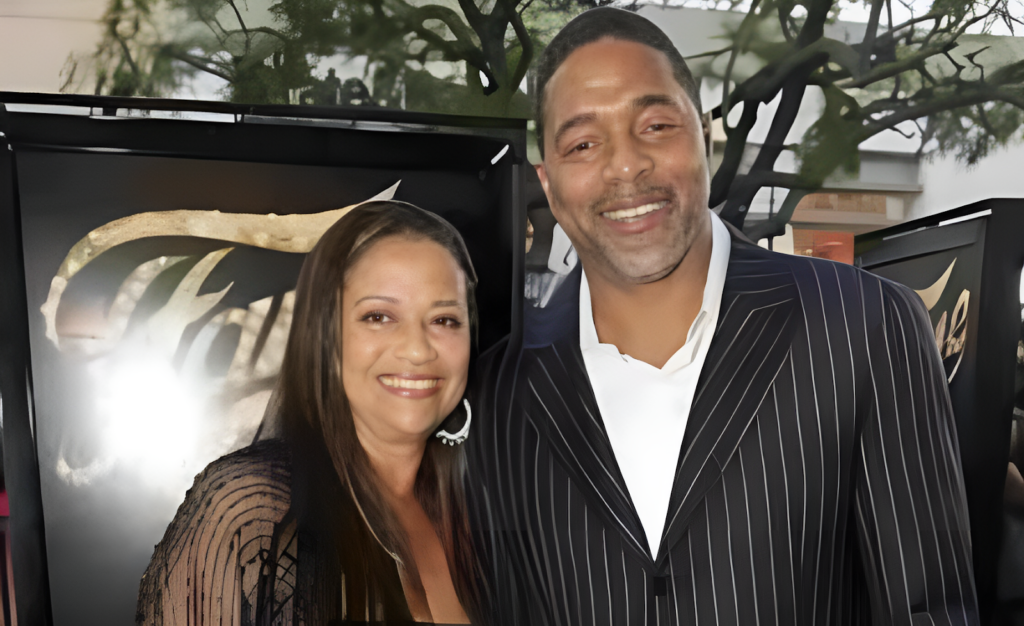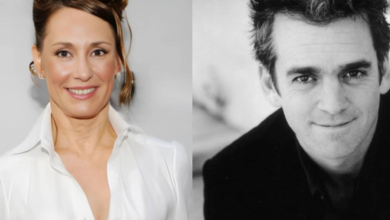Winnfred Wilford is a name that occasionally surfaces in discussions about the entertainment industry, primarily due to his association with the talented and multifaceted Debbie Allen. Known as the ex-husband of the Emmy-winning actress, Wilford’s life and career have their own unique trajectory, marked by significant contributions to the music industry. This article delves into Winnfred Wilford’s background, professional achievements, and his connection to Debbie Allen.
Early Life And Background

Winnfred Wilford was born in 1939 in the United States. While much of his early life, including his specific birthplace and family details, remains private, his upbringing within a Black ethnic community had a profound influence on his career. Growing up surrounded by rich cultural and musical traditions, Wilford developed a deep appreciation for music at an early age. This passion for the arts would eventually shape his path, guiding him toward a career in the music industry.
Raised in an environment that valued artistic expression, Wilford’s love for music was fostered by his community, laying the foundation for his later work in the entertainment world. His background, coupled with a strong sense of determination and creativity, positioned him to make meaningful contributions to the music industry, particularly in championing Black artists and fostering the growth of influential talent throughout his career. This early exposure to music and cultural diversity played an essential role in molding his professional identity as a promoter, mentor, and key figure in the development of legendary musical acts.
A Musical Career With A Focus On Development
Wilford’s passion for music blossomed early. By the age of 19, he joined a local R&B group called The Upsetters as a bass guitarist. This initial exposure to the music world fueled his desire to pursue a career in the industry. His experience in The Upsetters laid the foundation for his future success, and after honing his skills with the group, Wilford joined The Romeos, a Philadelphia-based band known for its smooth sound and soulful performances.
Though his early career was centered on performing, Wilford’s ambitions soon led him to explore other facets of the music business. In 1969, he moved to New York City, where he delved into acting and modeling while simultaneously working in public relations for major talent agencies. This move marked a pivotal shift in his career, as he recognized the impact he could have behind the scenes in the music industry.
A Transition To Industry Leadership
Wilford’s big break came in 1974 when he joined CBS Records, one of the most influential record labels of the time. His talent for identifying and nurturing musical talent quickly became evident, and he rose through the ranks of the company. By the 1980s, Wilford had reached the esteemed position of Vice President of the record division at CBS Records, where he was able to influence the careers of some of the biggest names in music.
One of Wilford’s greatest contributions during his tenure at CBS Records was his unwavering commitment to the development of Black artists. His work helped elevate the careers of legendary figures like Lou Rawls, The Jacksons, Teddy Pendergrass, and Luther Vandross, who all benefited from his strategic guidance and mentorship. Wilford’s leadership and passion for artist development earned him a stellar reputation, both within the company and throughout the music industry.
His tenure at CBS Records is seen as a period where the label not only solidified its dominance in the industry but also began to focus on promoting diverse talent. Wilford’s advocacy for Black musicians helped bring their music to a wider audience, ensuring that their voices were heard and celebrated in an often challenging industry.
In summary, Winnfred Wilford’s journey from a young musician to a respected industry leader is a testament to his talent, vision, and dedication to artist development. His contributions to the music business, particularly in promoting and shaping the careers of Black artists, have left a lasting legacy.
Marriage To Debbie Allen

Winnfred Wilford’s relationship with Debbie Allen began in 1973 when they crossed paths during rehearsals for Sheba, an off-Broadway musical. Their connection was immediate, with both artists recognizing a shared passion for the performing arts. After two years of dating, the couple married in 1975, beginning a new chapter in their personal and professional lives.
However, the pressures of their respective careers soon took a toll on their marriage. Debbie Allen was rising to fame as a star on the hit television series Fame, where she played Lydia Grant, a talented and strict dance instructor. At the same time, her responsibilities as the show’s choreographer added further demands on her time. Meanwhile, Wilford’s career at CBS in Manhattan kept him deeply involved in the music industry, and his work commitments meant frequent travel and long hours.
The distance, both physical and emotional, created a strain on their relationship, which eventually led to their separation in 1983 after eight years of marriage. Despite their divorce, the couple remained respectful toward one another. The marriage did not produce children, but it marked a significant period in their lives as they each continued to pursue their successful careers.
Who Is Debbie Allen?
Debbie Allen is one of the most respected and versatile figures in the entertainment industry, known for her groundbreaking work as an actress, choreographer, director, and producer. Her career took off with her iconic role as Lydia Grant on the beloved television series Fame (1982–1987). The show, which centered around a performing arts high school, showcased Allen’s multi-faceted talent as both a performer and choreographer, making her an integral part of the show’s success.
Beyond Fame, Debbie Allen’s accolades have solidified her place in entertainment history. She has won multiple Emmy Awards for her choreography and direction, including for her work on Fame and later on The Academy Awards. She also earned a Golden Globe award, reflecting her incredible contribution to both television and film.
Throughout her career, Debbie Allen has been a trailblazer for African American women in the performing arts, using her platform to advocate for diversity, equality, and the advancement of underrepresented voices in the entertainment industry. She also worked behind the scenes, directing and producing successful projects, further cementing her legacy as a creative force.
In addition to her professional achievements, Debbie Allen is a dedicated mother of three children. She has one son, Norman Nixon Jr., and two daughters, Vivian Nixon and DeVaughn Nixon, from her marriage to former NBA player Norm Nixon. Her children, too, have followed in her artistic footsteps, with Vivian Nixon becoming an accomplished dancer and DeVaughn Nixon pursuing acting. Through both her career and her family, Debbie Allen continues to inspire and influence new generations in the entertainment world.
Today, she continues to star as Catherine Avery on the long-running medical drama Grey’s Anatomy, further expanding her influence on the industry while maintaining her role as an advocate for arts education and the next generation of artists.
Legacy And Influence

Winnfred Wilford’s impact on the music industry remains profound, even though his fame is often eclipsed by his personal connections, particularly with his ex-wife, Debbie Allen. His work as a mentor, talent scout, and promoter helped elevate some of the most iconic artists of his time. By recognizing and cultivating the potential in emerging musicians, Wilford significantly contributed to the careers of superstars such as Luther Vandross, Teddy Pendergrass, and The Jacksons. His work with CBS Records not only helped shape the sound of an era but also cemented his place as a key figure in the entertainment industry’s evolution.
Wilford’s commitment to artist development, particularly Black artists, ensured that their talents were given the recognition they deserved. His ability to identify talent and advocate for their success speaks to his deep understanding of the music industry, as well as his passion for fostering creativity. While his name may not always appear at the forefront of musical history, his behind-the-scenes efforts have had a lasting influence on the landscape of popular music.
Final Thoughts
Winnfred Wilford’s journey is a testament to the power of persistence, passion, and the ability to nurture creativity. His career, marked by his time at CBS Records and his collaborations with industry legends, shows how dedication to one’s craft can leave a lasting legacy. While his personal life, including his marriage to Debbie Allen, may have attracted attention, it is his professional contributions that define his true legacy.
Wilford’s story is one of perseverance and passion for music, leaving an indelible mark on the entertainment world. His efforts to uplift Black artists and foster their careers remain a vital part of his enduring influence, ensuring that his name will always be linked to the development of some of the most celebrated figures in music history.
Conclusion

Winnfred Wilford’s life and career are a testament to his dedication to the arts, particularly in the music industry. His role in promoting and nurturing Black artists has left an enduring legacy, contributing to the success of legends like Lou Rawls and Luther Vandross. While his marriage to Debbie Allen remains a notable chapter in his life, his professional achievements stand on their own merit. Wilford’s journey highlights the importance of passion and perseverance in shaping a meaningful career and legacy.
FAQs About Winnfred Wilford
1. Who is Winnfred Wilford?
Winnfred Wilford is a former vice president at CBS Records and a key figure in the music industry, known for nurturing the careers of Black artists. He is also recognized as the ex-husband of Debbie Allen.
2. What were Winnfred Wilford’s contributions to the music industry?
Wilford played a pivotal role in promoting and developing the careers of legendary artists such as The Jacksons, Lou Rawls, Teddy Pendergrass, and Luther Vandross during his tenure at CBS Records.
3. When did Winnfred Wilford marry Debbie Allen?
Wilford married Debbie Allen in 1975. They separated in 1983 after eight years of marriage.
4. Did Winnfred Wilford and Debbie Allen have children?
No, the couple did not have any children together.
5. What was the reason for Winnfred Wilford and Debbie Allen’s separation?
Their demanding professional lives and physical distance strained their relationship. Wilford worked in Manhattan, while Allen was primarily based in Hollywood for her role in Fame.
6. What is Winnfred Wilford’s legacy?
Wilford is remembered for his influence in the music industry, particularly for his efforts to support and promote Black artists. His work has had a lasting impact on the entertainment landscape.




